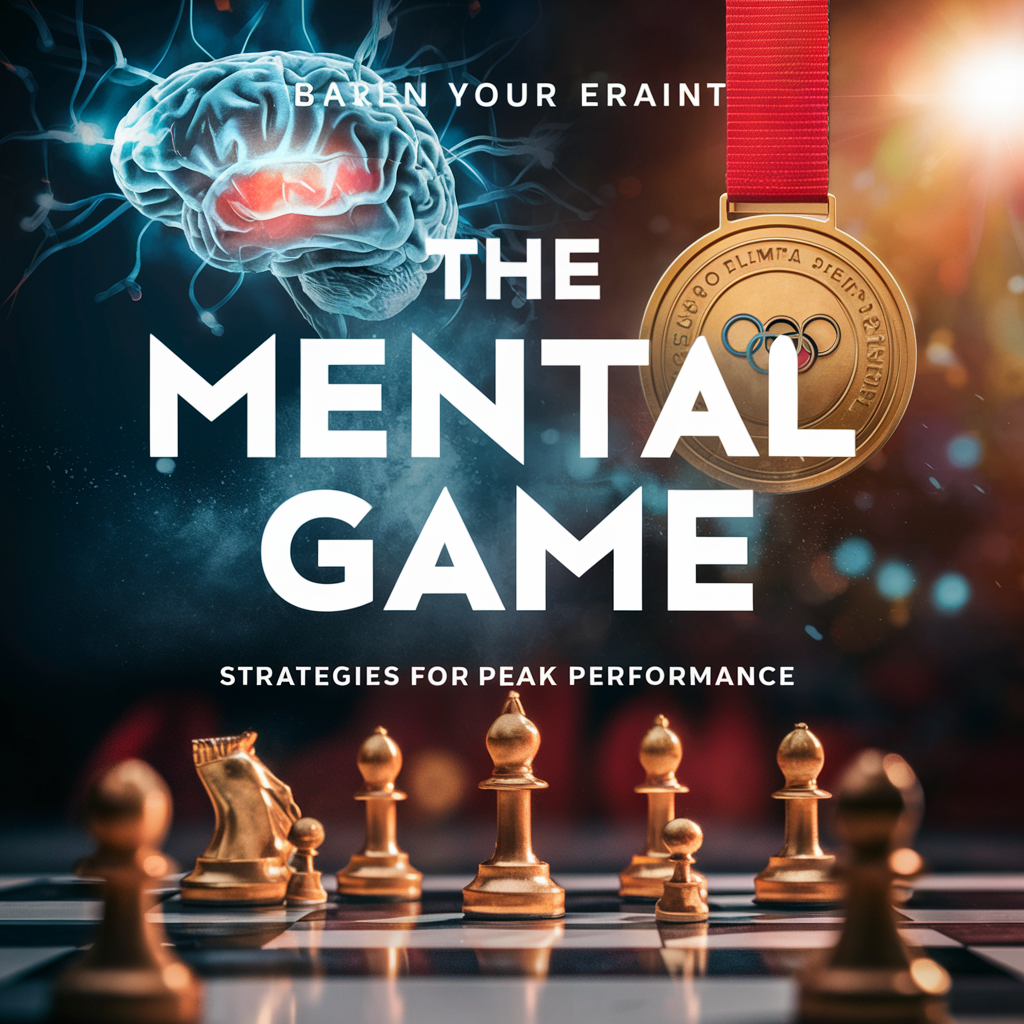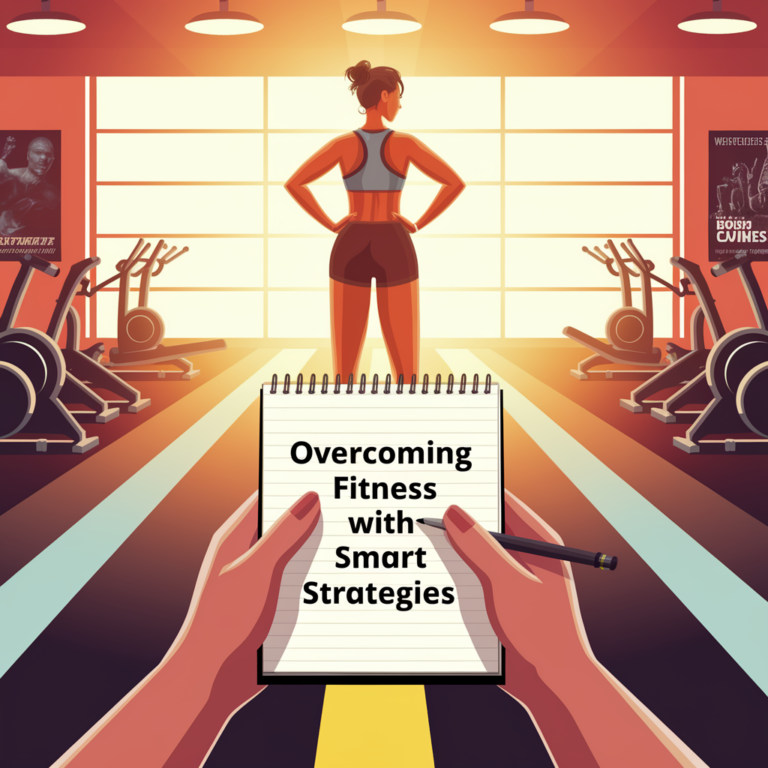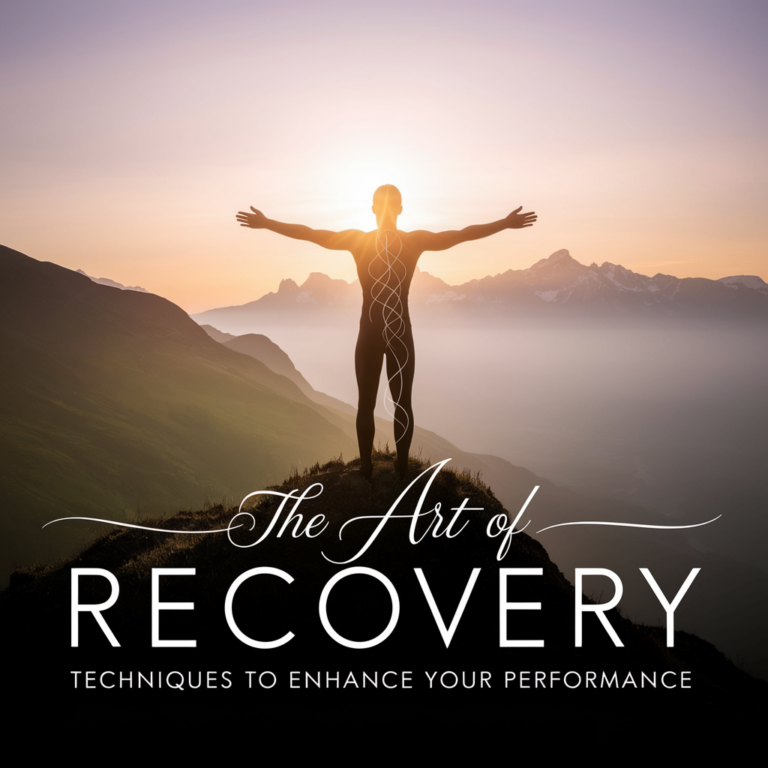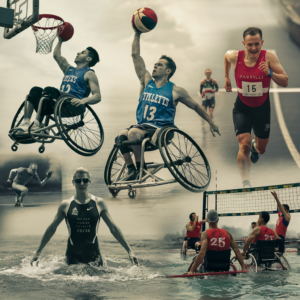The Mental Game: Strategies for Peak Performance
It’s often said that sports are as much about mental fortitude as they are about physical prowess. Think about it: when athletes step onto the field, they don’t just bring their bodies; they carry their minds, their emotions, and their mental strategies into the fray. The mental game can make or break performance, and it’s high time we delve into how athletes can harness this often-overlooked aspect of competition.
Understanding the Mental Game
So, what exactly do we mean by “the mental game”? It encompasses everything from focus and confidence to resilience and emotional regulation. I remember watching a particularly nail-biting tennis match between two top-ranked players. As one player began to falter, it wasn’t just their physical skills that diminished; their mental state crumbled too. This phenomenon is not unique to tennis—it’s universal across all sports.
Research indicates that mental preparation can account for up to 90% of athletic success. This staggering figure begs the question: how can athletes cultivate their mental resilience and ensure they perform at their peak? Let’s explore some effective strategies.
1. Visualization Techniques
Visualization is often a go-to strategy among elite athletes. The practice involves imagining oneself successfully executing a skill or competing in a game. This technique isn’t just fanciful daydreaming; it’s grounded in psychological theory and has been shown to enhance performance.
Take Michael Phelps, for example. The Olympic swimmer famously engaged in extensive visualization exercises, picturing every detail of his races, from the starting block to the finish line. He would even imagine the feel of the water, the cheers of the crowd, and the sensation of winning. By repeatedly seeing success in his mind, Phelps conditioned himself to expect it in reality.
Here’s how to incorporate visualization into your routine:
- Set a Clear Goal: Be specific about what you want to achieve.
- Find a Quiet Space: Eliminate distractions to help focus your mind.
- Engage All Senses: Imagine not just the visuals but sounds, smells, and feelings associated with success.
- Practice Regularly: Make visualization a consistent part of your training regimen.
2. Mindfulness and Meditation
In a world filled with distractions, mindfulness has emerged as a powerful tool for athletes. By focusing on the present moment, athletes can reduce anxiety and improve concentration. Some studies suggest that athletes who practice mindfulness experience better emotional regulation and performance consistency.
Consider the case of NBA star LeBron James. Known for his incredible focus during games, LeBron attributes part of his success to mindfulness meditation. He takes time before games to center himself, ensuring that he’s not just physically prepared, but mentally sharp as well. This practice helps him stay present and calm, especially in high-pressure situations.
If you’re new to mindfulness, here are a few tips to get started:
- Start Small: Begin with just five minutes a day.
- Focus on Breathing: Pay attention to your breath; it’s a simple yet effective anchor.
- Observe Thoughts: Allow thoughts to come and go without judgment.
- Increase Duration Gradually: As you become more comfortable, increase your meditation time.
3. Goal Setting
Setting goals is not just about having a destination; it’s about creating a roadmap to success. Effective goal-setting involves creating specific, measurable, achievable, relevant, and time-bound (SMART) objectives. This practice can significantly enhance motivation and focus, helping athletes channel their energy towards achieving peak performance.
Take a moment to think about your favorite athlete. Chances are they have a clear vision of what they want to achieve. For instance, consider the journey of Serena Williams. Her career has been marked by numerous goals—from winning Grand Slam titles to returning to the sport after motherhood. Each of these milestones has been meticulously planned and pursued, illustrating how goal-setting can lead to remarkable achievements.
To implement effective goal-setting in your own training, try these steps:
- Identify Short-Term and Long-Term Goals: Break down your ultimate aspiration into smaller, manageable tasks.
- Write It Down: Documenting goals increases accountability.
- Track Progress: Regularly assess where you stand to stay motivated.
- Adjust Goals as Necessary: Flexibility is key; if something isn’t working, don’t hesitate to recalibrate.
4. Positive Self-Talk
Your inner dialogue can be a powerful influence on your performance. Positive self-talk involves using affirmations and constructive thoughts to combat negative feelings or doubts. It’s easy to get caught in a cycle of self-criticism; however, reframing those thoughts can lead to improved performance.
Think back to your last major competition. Did you find yourself spiraling into worry? “What if I fail?” “What if I mess up?” Instead, consider what would happen if you replaced those thoughts with affirmations like, “I am prepared,” or “I can do this.”
Athletes like the legendary gymnast Simone Biles have mastered the art of positive self-talk. Before her routines, she often repeats affirmations to boost her confidence. This technique has helped her maintain composure and focus, even in the most challenging moments.
To cultivate positive self-talk, try these strategies:
- Recognize Negative Thoughts: Awareness is the first step; catch yourself in the act.
- Challenge Those Thoughts: Ask if they are really true.
- Replace with Positive Affirmations: Create a set of empowering statements to repeat.
- Practice Regularly: Make positive self-talk a habit, not just something you do on game day.
5. Building Resilience
Resilience—the ability to bounce back from setbacks—is a crucial quality for any athlete. Whether it’s losing a game, facing injuries, or dealing with criticism, cultivating resilience can mean the difference between giving up and pushing through. Some studies suggest that resilient athletes are better equipped to handle pressure and adversity.
Consider the story of Tom Brady, the NFL quarterback who has experienced his fair share of ups and downs throughout his career. Brady faced criticism early on, and his path to success was paved with challenges, including being drafted late and facing injuries. Yet, his resilience—his unwavering belief in his abilities—has propelled him to numerous championships.
To build resilience, keep these strategies in mind:
- Embrace Failure: View setbacks as learning opportunities rather than roadblocks.
- Stay Flexible: Adapt to changing circumstances rather than resisting them.
- Seek Support: Surround yourself with a strong support network of coaches, teammates, and friends.
- Reflect on Past Successes: Remind yourself of times you’ve overcome challenges before.
6. Stress Management Techniques
Competition can be stressful. The pressure of performance can lead to anxiety, and managing this stress is vital for peak performance. Athletes must find effective ways to cope with stress, whether through physical techniques, mental exercises, or lifestyle changes. Some studies indicate that athletes who manage stress effectively perform better under pressure.
Take a leaf from the book of Olympic sprinter Usain Bolt. Known for his laid-back demeanor, Bolt has often emphasized the importance of finding joy in competition. He manages stress by maintaining a positive outlook and not taking himself too seriously. (After all, who can forget those iconic victory dances?)
To manage stress, consider these techniques:
- Breathing Exercises: Deep breathing can help calm the mind and body.
- Physical Activity: Engaging in regular exercise can be a great stress reliever.
- Connect with Others: Talk about your feelings with teammates or coaches.
- Engage in Hobbies: Pursue activities outside of sport to help maintain balance.
7. The Power of Routine
Routines can provide structure and predictability, which can be comforting amidst the chaos of competition. Many successful athletes have built pre-performance routines that help them focus and prepare mentally. These routines may include specific warm-ups, stretches, or even rituals that ground them before they take to the field.
Consider the legendary golfer Jack Nicklaus, who was known for his meticulous pre-shot routine. He would visualize his shots, analyze the conditions, and take his time before addressing the ball. This consistent approach helped him maintain focus, even in high-pressure situations like the Masters.
To create an effective routine, think about these elements:
- Identify Key Components: What helps you feel prepared? Include these in your routine.
- Be Consistent: Perform your routine before every event to build familiarity.
- Adjust as Needed: Be open to refining your routine based on what feels effective.
- Stay Present: Use your routine to ground yourself in the moment.
8. Seeking Professional Help
Sometimes, the mental game can feel overwhelming, and it may be beneficial to seek the guidance of a sports psychologist. These professionals can provide tailored strategies, helping athletes tackle specific mental barriers. Some studies suggest that working with a psychologist can lead to significant improvements in performance, particularly in high-pressure environments.
Take, for instance, the experience of Olympic athletes who often work with psychologists to prepare for the mental challenges of competition. These experts can help athletes develop coping mechanisms, enhance focus, and foster resilience. It’s not just about sports; it’s about overall well-being.
In conclusion, the mental game plays an essential role in achieving peak performance. By employing visualization, mindfulness, effective goal-setting, positive self-talk, resilience-building, stress management, structured routines, and seeking professional help, athletes can unlock their full potential. Remember, the journey to peak performance is as much about the mind as it is about the body. And as anyone who has ever competed knows, a strong mind can lead to incredible feats on the field, court, or track.
So, whether you’re an aspiring athlete or a seasoned pro, take these strategies to heart. Embrace the mental game, and you might just find that your performance reaches new heights. After all, in the end, it’s not just about winning; it’s about the journey, the lessons learned, and the joy of the game.









